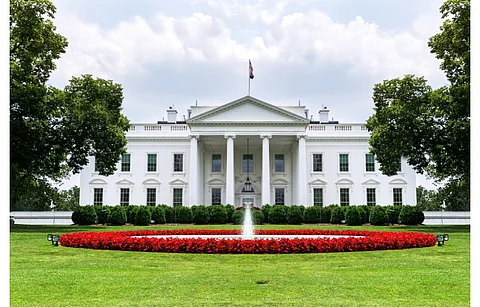

The US Department of Commerce (DOC) has officially launched antidumping (AD) and countervailing duty (CVD) investigations into crystalline silicon solar cells from the 4 Southeast Asian nations of Cambodia, Malaysia, Thailand and Vietnam.
It pertains to solar cells whether or not assembled into modules from the 4 destination nations. This development comes even as the 2-year moratorium on tariff imposition on these countries is set to end on June 6, 2024.
Here's a quick background to the AD/CVD issue: In February 2022, a lesser-known US solar manufacturer Auxin Solar appealed to the DOC to investigate and slap AD/CVD on Chinese companies that it said were attempting to avoid paying US import tariffs, especially with regard to Section 201 and Section 301. While most of their products were made in China, they were using the 4 Southeast Asian nations for minor processing to be able to ship these to the US and thus avoid the import duty.
In response, the DOC's final investigation named 5 companies as dodging tariffs, namely BYD Hong Kong, New East Solar, Canadian Solar, Trina Solar and Boviet Solar. However, US President Joe Biden then imposed a 2-year moratorium on imposing any tariffs on solar imports from the 4 nations. He sought to buy time for domestic solar manufacturing capacity to spruce up during the period for a reliable local supply of modules. This moratorium comes to an end on June 6, 2024 (see Biden Saves The Day For US Solar Industry).
Meanwhile, Auxin Solar and solar solutions company Concept Clean Energy challenged the moratorium earlier this year, which could lead to retroactive tariffs (see Solar Companies Challenge US Govt Tariff Moratorium).
Now, the fresh investigations launched by the DOC follow a petition from the American Alliance for Solar Manufacturing Trade Committee with its members being PV manufacturers First Solar, Hanwha Q CELLS USA and Mission Solar Energy, says the International Trade Administration. The alliance launched several petitions in the matter in April 2024 (see US Solar PV Manufacturers Launch AD/CVD Petitions).
According to the ITA, solar imports from the 4 Southeast Asian nations to the US have increased significantly over the last 2 years. The US imported $2.3 billion worth of solar modules from Cambodia in 2023, while Malaysia sent in products worth $1.87 billion last year. During the same year, Thailand exported $3.73 billion and Vietnam $3.99 billion worth of solar products to the US.
The ITA is now expected to announce its preliminary determination into the AD/CVD investigations by June 10, 2024 to ascertain if these imports caused any domestic injury. Further details are available on the ITA's website.
In recent times, the US government has announced some strong measures to display support to the local PV manufacturing industry and take a strong stance against Chinese suppliers. Tariffs under Section 201 and Section 301, both under the US Trade Act of 1974, are part of this exercise.
Section 201 tariffs were initially imposed by Biden's predecessor Donald Trump in 2018 on imported crystalline silicon solar cells and modules. The Biden administration chose to continue the same while keeping bifacial solar panels out of the purview.
As per the recent developments, the Biden administration has removed the exemption for imported bifacial solar modules from Section 201 tariffs, with some exceptions. It may also increase the tariff-rate quota for solar cells by 7.5 GW compared to 5 GW to encourage upstream solar supply chain development (see Bifacial Solar Panels Lose Section 201 Tariff Protection).
Under Section 301, the US government has imposed tariffs on Chinese imports into the country, including solar cells. Recently, the US completed its 4-year review of the imposition of tariffs on Chinese products that were initially imposed by the Trump Administration in 2018.
As a result, Biden has now increased the Section 301 tariffs on Chinese solar cells whether assembled into modules or not from 25% now to 50% in 2024. However, it may provide temporary exclusions for certain solar manufacturing equipment to boost domestic manufacturing (see US Government To Increase Tariffs On Imported Solar Cells).
